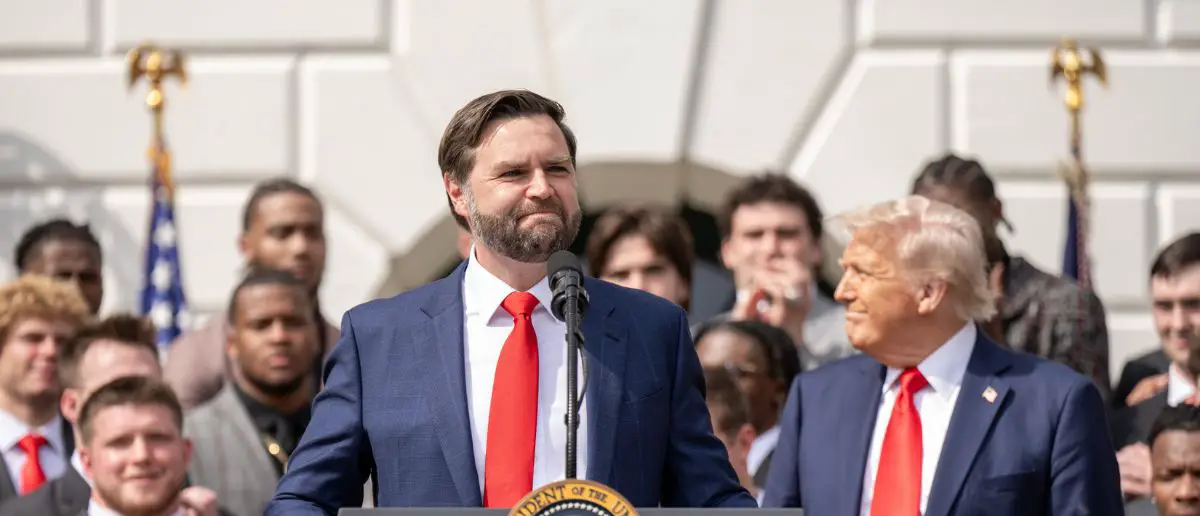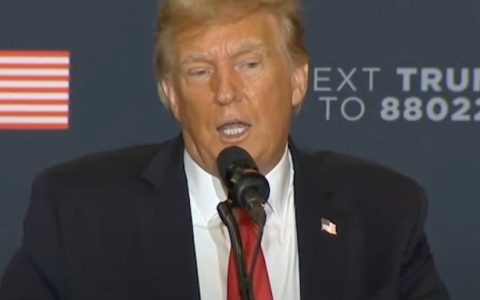
The Trump admin is battling for life in the courts. There’s light at the end of the tunnel.
Because the U.S. Supreme Court just gave Donald Trump a much needed last-minute win.
Trump Scores Supreme Court Victory in Battle Against Teacher Grant Waste
The Supreme Court on Friday greenlit a temporary freeze on millions of dollars in grants aimed at tackling teacher shortages. This marks the first major triumph at the high court since Trump reclaimed the White House in January, signaling a powerful shift in how federal funds are managed under his watch.
The 5-4 decision saw Chief Justice John Roberts siding with the court’s three liberal justices in dissent, but the majority ruled in favor of the administration’s push to halt the cash flow. At the heart of the move is Trump’s fierce stance against what he sees as wasteful spending tied to diversity, equity, and inclusion (DEI) initiatives—pet peeves of his administration that he’s vowed to root out.
The administration axed 104 out of 109 grants from two programs: Supporting Effective Educator Development and Teacher Quality Partnership. These efforts, meant to recruit and train teachers for underserved communities, were targeted with a form letter that didn’t dive into specifics about which DEI programs were the culprits.
Eight Democrat-led states—think California, Illinois, and New York—cried foul and hauled the administration to court. A federal judge in Boston threw them a lifeline, issuing an order to keep the funds flowing while he mulled over the case. An appeals court backed that call, but the Trump team wasn’t about to let it slide. They took it straight to the Supreme Court’s emergency docket last week, and the justices delivered.
The administration’s ace in the hole? A rock-solid argument they’ve been hammering home: No lone district court judge should have the power to steer national policy, even for a hot minute. “This case exemplifies a flood of recent suits that raise the question: ‘Does a single district-court judge who likely lacks jurisdiction have the unchecked power to compel the government of the United States to pay out (and probably lose forever)’ millions in taxpayer dollars?” acting Solicitor General Sarah Harris, the administration’s top legal eagle, told the Supreme Court in their appeal. It’s a drumbeat Trump’s team has been pounding in a flurry of cases racing to the high court, echoing gripes past presidents have had when judges threw wrenches in their plans.
The blue states fired back, claiming the district court was fast-tracking the case and would likely rule soon. But the Supreme Court wasn’t swayed, handing Trump a win that keeps the funds on ice for now.
This teacher grant showdown is just one piece of a bigger puzzle. The justices are juggling a stack of emergency appeals from Trump’s second term, all circling similar themes of reining in judicial overreach. Three of those cases tie into the president’s bold bid to end birthright citizenship, with the administration begging the court to slap limits on a nationwide injunction blocking that move. Another pits Trump’s use of the Alien Enemies Act—a wartime gem—against critics, as he aims to fast-track deportations of alleged Venezuelan gang members.
The court’s already knocked out two other Trump emergencies. In one, they let the head of an independent whistleblower agency hang onto his gig temporarily, though a lower court later gave Trump the green light to boot him. In the other, the justices shot down the administration’s plea to dodge a judge’s deadline to dish out billions in foreign aid—litigation that’s still churning.
Friday’s ruling is a shot of adrenaline for Trump’s agenda, proving his administration can flex its muscle at the Supreme Court. With more battles brewing, it’s clear the president’s team is playing hardball to reshape policy—and they’re just getting started.
Justice Barrett’s Shocking Lean Toward Planned Parenthood: Why She Must Stand Firm for Life
Also on the horizon for the U.S. Supreme Court is a major case involving Planned Parenthood. As a shock to many conservative Justice Amy Coney Barrett seems poised to side with Planned Parenthood, potentially handing a devastating blow to pro-life efforts in South Carolina and beyond. The Palmetto State is locked in a fierce battle to strip the abortion giant from its Medicaid program, arguing that taxpayer dollars should not prop up an organization notorious for ending unborn lives—even if abortion itself is only covered by Medicaid in rare cases, like when a mother’s life hangs in the balance.
South Carolina’s ban is sweeping, cutting Planned Parenthood off from providing everything from contraception to routine checkups. If the Supreme Court greenlights this move, conservative states across the nation could follow suit, slamming the door shut on Planned Parenthood’s Medicaid cash flow. But if Barrett wavers, the pro-life cause could take a crippling hit.
The stakes couldn’t be higher. South Carolina contends that its right to steer Medicaid funds away from abortion providers is a matter of principle—protecting life, not bankrolling its destruction. Yet during oral arguments on April 2, Barrett repeatedly aligned herself with the Court’s liberal wing, raising eyebrows among those who celebrated her as a Trump-appointed champion of conservative values. Newsweek reached out for comment from Planned Parenthood and South Carolina Governor Henry McMaster’s office on Friday, but the real story unfolded in the courtroom, where Barrett’s questions left pro-life advocates reeling.
Grilling South Carolina’s attorney, John Bursch, Barrett echoed liberal Justice Elena Kagan’s stance, conjuring up a hypothetical that seemed to favor patient choice over state authority. “Mr. Bursch, I mean, don’t you think—if I want to go see Dr. Jones, and Dr. Jones, that’s the provider of my choice, and the state has disqualified Dr. Jones, and, as Justice Kagan points out, you know, the statute says ‘may obtain the benefits,’ there’s no mechanism, am I right, for the beneficiary to say, well, you’re depriving me of my ability—we won’t call it right; we won’t use the loaded word—but my ability to see the provider of my choice, and nobody is disputing that Dr. Jones can provide the services in a competent way that I want to have?” Barrett’s words suggest a troubling sympathy for Planned Parenthood’s argument that patients should have unfettered access to their providers, even those entangled in the abortion industry.
Later, she doubled down, siding with liberal Justice Sonia Sotomayor to point out the financial gamble low-income Medicaid recipients face. “The beneficiary remedy, as Justice Sotomayor pointed out, that’s if your claim is denied, right? So then that’s the beneficiary taking the risk, going to the provider she wants to see, and then potentially having to pay out of pocket, right?” Her focus on the burden to patients rings hollow when weighed against the moral urgency of defunding an organization that thrives on abortion.
Planned Parenthood, predictably, seized on this angle. In a statement, they crowed: “The U.S. Court of Appeals for the Fourth Circuit has affirmed three times that people who use Medicaid as their insurance have the right to visit any qualified family planning provider that accepts Medicaid, including those that provide abortion, like Planned Parenthood South Atlantic and that patients can sue to enforce that right.” It’s a slick defense of their bottom line, cloaked as a win for the little guy.
On the other side stands the Alliance Defending Freedom (ADF), the conservative powerhouse backing South Carolina’s fight. Their statement cuts through the noise: “ADF is defending the ability of pro-life states like South Carolina to direct Medicaid funds away from abortion giants like Planned Parenthood. Medicaid funds should be used to protect life, not destroy it. No citizen should be forced to fund facilities that perform life-ending and medically fraught procedures like abortion.” It’s a clarion call Barrett must heed. This case isn’t about bureaucratic nitpicking—it’s a showdown over whether taxpayer money will fuel the abortion machine.
The Supreme Court’s decision remains up in the air, with a ruling expected by late June, per the Court’s own timeline: “Oral arguments typically conclude in April and for the remainder of the term the Court releases orders and opinions.” Time is ticking, and Barrett’s next move could either cement her legacy as a pro-life stalwart or tarnish it with a betrayal of the values that propelled her to the bench. South Carolina’s stand is righteous—Medicaid should not be a lifeline for Planned Parenthood’s agenda. Justice Barrett must reject the liberal siren song and rule for life. Anything less would be a gut punch to the millions who trusted her to uphold their convictions.
Stay tuned to the DC Daily Journal.





